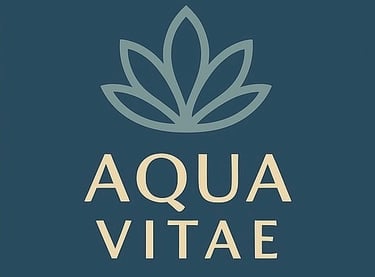Natural Pools vs. Salt Pools vs. Chlorine Pools Comparison
Understand the key differences in health, environmental impact, costs, and maintenance between natural swimming pools, chlorine pools, and saltwater pools.
8/18/20252 min read
If you’re considering building or renovating a pool in Europe, the first question is no longer: chlorine or saltwater? The new question is: why haven't I thought of a natural pool yet?
Homeowners love them for healthier family swimming, but they’re also transforming the hospitality sector. Eco-resorts, boutique hotels, and retreat venues are turning to natural pools as wellness features that attract guests and reduce long-term operating costs.
So how do natural pools compare with chlorine and saltwater pools in terms of health, costs, maintenance, environmental impact, and long-term value? Let’s break it down.
What is a Chlorine Pool?
Chlorine pools rely on chemical disinfection. While effective, they carry serious downsides:
Respiratory issues – Chlorine fumes can irritate lungs and worsen asthma.
Skin & eye irritation – Red eyes, rashes, and dry skin are common.
Hair damage – Chlorine strips natural oils.
Cancer risk – Disinfection by-products (THMs) have been linked to cancer.
For families this is concerning - and for hotels, spas, and retreats too, as chlorine-heavy pools create negative guest experiences and will eventually tarnish a hospitality brand's eco/health value.
What is a Saltwater Pool?
Saltwater pools are often marketed as “natural,” but in fact they still use chlorine. Risks include:
Skin dryness & irritation
Eye discomfort
Respiratory irritation from salt aerosols
Environmental impact from salt runoff in gardens and soil
For hospitality operators, salt systems also mean higher corrosion risk for surrounding structures and more maintenance headaches.
What is a Natural Swimming Pool (Biopool)?
Natural swimming pools - also called biopools - use aquatic plants, advanced filters, and UV-C light to purify water naturally.
Benefits:
Healthier water – no chemicals, safe for children, pets, and sensitive guests.
Longevity – liners last 30–50 years (vs. 5–8 years for traditional pools).
Lower running costs – save tens of thousands over decades.
Design flexibility – modern, luxury, or wild naturalistic styles that enhance any garden or resort landscape.
Guest appeal – for hotels and retreats, a natural pool is a unique selling point that attracts eco-conscious travelers.
Health Comparison
Chlorine pools expose swimmers to harmful disinfection by-products (DBPs), linked to asthma and skin conditions. Saltwater pools offer no real relief.
Natural pools, by contrast, provide clean, chemical-free water - perfect for everyday family use and highly marketable for resorts prioritizing wellness.
Cost Comparison
According to Aqua Vitae’s analysis:
Chlorine Pool: €75k–€165k over 30 years
Saltwater Pool: €60k–€135k over 30 years
Natural Pool: €7.5k–€15k over 30 years
For homeowners, this means huge savings. For hospitality investors, the difference is even more significant - lower operating costs = higher profit margins.
Maintenance Comparison
Chlorine/Salt Pools: constant chemical balancing, pH checks, and pump energy.
Natural Pools: occasional plant trimming and filter checks.
For families this means convenience. For retreat centers, it means lower staff costs and fewer operational headaches.
Environmental Impact
Chlorine and saltwater pools pollute air, soil, and ecosystems.
Natural pools, on the other hand, support biodiversity, creating mini-ecosystems that benefit gardens, wildlife, and the guest experience. In Europe, where eco-tourism and sustainability drive demand, natural pools are a perfect fit.
Long-Term Value
Natural pools are more than swimming spaces - they’re strategic investments.
For homeowners: increase property value with eco-luxury appeal.
For retreat venues: enhance brand positioning as sustainable and wellness-oriented.
For hotels/resorts: attract higher-paying guests seeking natural, chemical-free experiences.
Conclusion
For both families and hospitality investors, the evidence is clear. Chlorine and saltwater pools are outdated, expensive, and harmful to health and the environment.
A natural swimming pool (biopool) offers:
Safe, chemical-free water
Lower lifetime costs
Easier upkeep
Eco-friendly design that adds property and guest value
In Europe, where eco-living and wellness tourism are booming, natural pools are the future of swimming.
Ready to Build Your Natural Pool?
Whether you’re a homeowner dreaming of a healthier swimming experience, a retreat owner looking to attract eco-conscious guests, or an investor seeking long-term value, we’d love to hear about your project.
👉 Get in touch with Aqua Vitae today and tell us about the natural pool you’d like to create. Our team will guide you through the possibilities and help design a pool that fits your vision.
Experience the future of swimming with biopools.
create@aquavitaepools.com
© 2025. All rights reserved.


